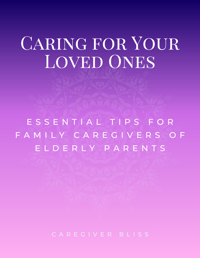As our loved ones age, it's not uncommon for them to experience shifts in behavior and perception. One challenge that often arises is dealing with paranoia in aging parents. This phenomenon can be distressing for both elderly individuals and their families, as it may lead to strained relationships and a decline in overall well-being.
In this article, we'll explore the various aspects of paranoia in aging parents, from understanding its causes to effective strategies for managing and improving the situation.
Recognizing the Signs
Paranoia in aging parents can manifest in various ways, making it crucial for family members to be observant and sensitive to behavioral changes. Common signs include:
- Excessive Distrust: Aging parents may become overly suspicious of others, even close family members or friends, leading to strained relationships.
- Irrational Fears: Unfounded fears about personal safety, finances, or health can become prevalent, causing anxiety and stress.
- Hallucinations or Delusions: Some elderly individuals may experience hallucinations or delusions, further contributing to feelings of paranoia.
Understanding the Causes
Several factors contribute to the development of paranoia in aging parents. These can include:
- Cognitive Decline: Conditions like dementia or Alzheimer's disease can affect cognitive function, leading to increased paranoia.
- Physical Health Issues: Chronic pain, medication side effects, or other health problems may contribute to heightened anxiety and suspicion.
- Social Isolation: Seniors who experience loneliness or isolation are more prone to developing paranoid thoughts as they lack regular social interactions.
Coping Strategies
Managing paranoia in aging parents requires a thoughtful and compassionate approach. Here are some practical strategies to consider:
- Open Communication: Encourage open and honest communication with your loved one. Ask them to express their concerns and fears, and actively listen without judgment.
- Professional Assessment: Consult with healthcare professionals to rule out any underlying medical conditions contributing to paranoia. A thorough assessment can guide appropriate treatment options.
- Establish Routine and Structure: Creating a consistent routine and structure can provide a sense of security, helping to alleviate feelings of uncertainty.
- Include Them in Decision-Making: Involving aging parents in decisions about their care and daily activities can empower them and reduce feelings of helplessness.
- Social Engagement: Encourage social interactions to combat isolation. Regular visits from friends, and family, or participation in community activities can improve mental well-being.
Conclusion
Paranoia in aging parents is a complex issue that requires understanding, patience, and proactive measures. By recognizing the signs, understanding the underlying causes, and implementing effective coping strategies, families can navigate this challenging aspect of the aging process. A supportive and empathetic approach can make a significant difference in promoting their overall well-being.
Share your experiences and insights in the comments section below. Have you encountered challenges related to paranoia in aging parents? What strategies have you found effective in managing these situations? Your input can be invaluable for others facing similar circumstances, giving them a sense of connection and understanding.
Free Guide:
Caring For Your Loved Ones
 Attention family caregivers! Are you struggling to provide the best care for your aging parents? Don't worry, we've got you covered.
Attention family caregivers! Are you struggling to provide the best care for your aging parents? Don't worry, we've got you covered.
Download our free guide, Caring for Your Loved Ones: 10 Essential Tips for Family Caregivers of Elderly Parents, and unlock the secrets to becoming an exceptional caregiver.
From adapting the home environment to promoting independence, this invaluable resource will transform your caregiving experience into a more rewarding journey. Don't wait—give your loved ones the care they deserve, and download your free copy today!

